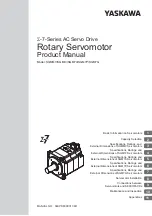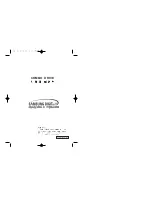
10
Project planning
Selecting the braking resistor
Operating Instructions – MOVIMOT
®
flexible
301
10.8.5
Supply cable for braking resistor
Use only shielded cables.
The cable cross section depends on the tripping current I
F
.
The nominal voltage of the cable must amount to at least V
0
/V = 300 V / 500 V.
10.8.6
Protection against thermal overload of the braking resistor
To avoid thermal damage of the braking resistor as well as subsequent damage, the
braking resistor has to be thermally monitored.
SEW‑EURODRIVE
suggests the fol-
lowing options:
•
TCB thermal circuit breaker
The TCB thermal circuit breaker is installed in the control cabinet, connected to the
supply cable to the braking resistor and set to the tripping current of the braking re-
sistor. If the measured mean current exceeds the tripping current, an NC contact
switches and reports an overload of the braking resistor. The connection of braking
resistor and inverter is separated simultaneously, thus ending the generator mode.
•
Integrated temperature switch –T
Braking resistors with the label –T are equipped with an integrated temperature
switch. The temperature switch is thermally coupled to the braking resistor and
switches an NC contact in case of overtemperature of the braking resistor. The
braking resistor-inverter connection is not interrupted. In case of thermal overload,
the regenerative operation has to be terminated.
SEW‑EURODRIVE
recommends
shielding the connection cable of the temperature switch.
•
Thermal overload relay
A thermal overload relay is installed in the control cabinet, connected to the supply
cable to the braking resistor and set to the tripping current of the braking resistor. If
the measured mean current exceeds the tripping current, an NC contact switches
and reports an overload of the braking resistor. The braking resistor-inverter con-
nection is not interrupted. In case of thermal overload, the regenerative operation
has to be terminated.
10.8.7
Parallel connection of braking resistors
It is permitted to connect several identical braking resistors in parallel. The following
applies:
•
The power connections of the braking resistors must be connected to +R and –R
in parallel.
•
Each braking resistor requires a separate protection against thermal overload.
•
The signal contacts (NC contacts) of the protection devices must be connected in
series.
29129451/EN – 12/2019
















































